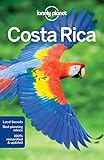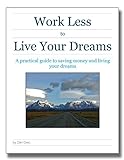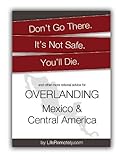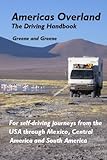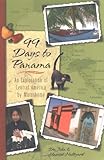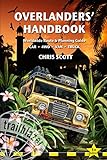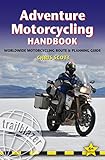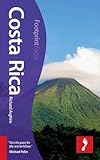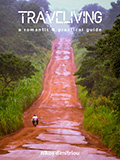Difference between revisions of "Costa Rica"
(→Exiting with a vehicle) |
|||
| Line 17: | Line 17: | ||
* The owner must show the new [[Passport]] stamp (including a copy), [[Drivers license]], the original [[Vehicle registration]], vehicle insurance and the fumigation reciept to customs (''aduana''). | * The owner must show the new [[Passport]] stamp (including a copy), [[Drivers license]], the original [[Vehicle registration]], vehicle insurance and the fumigation reciept to customs (''aduana''). | ||
* The owner is issued a temporary import permit for the vehicle. | * The owner is issued a temporary import permit for the vehicle. | ||
| − | '''NOTE:''' You may encounter locals offering to help you with paperwork to get across the border. | + | |
| + | '''NOTE:''' You may encounter locals offering to help you with paperwork to get across the border. See [[Pan_American_Highway#Central_America|Central America Border Crossings]] for advice. | ||
==Cost of entry== | ==Cost of entry== | ||
| Line 37: | Line 38: | ||
* The registered owner is stamped out of Costa Rica at immigration. | * The registered owner is stamped out of Costa Rica at immigration. | ||
* The registered owner presents the temporary import paper to customs, where it is cancelled. | * The registered owner presents the temporary import paper to customs, where it is cancelled. | ||
| − | |||
=Overland Essentials= | =Overland Essentials= | ||
Revision as of 15:26, 8 November 2011
Currency to display:
Contents
At the border
Correct as of: February 2010
Required Paperwork
- Passport of registered owner (original and 1 copy).
- Drivers license of registered owner (original and 1 copy).
- Vehicle registration (original and 1 copy).
- Vehicle insurance (original and 1 copy). (#Vehicle_Insurance see below)
Process at border
- As you drive over the border you will pass through fumigation (free) and be given a receipt.
- The owner of the vehicle gains entry at immigration (migración), including a stamp in their Passport. A copy of this new stamp is required.
- Insurance for the vehicle must be purchased. (see below)
- The owner must show the new Passport stamp (including a copy), Drivers license, the original Vehicle registration, vehicle insurance and the fumigation reciept to customs (aduana).
- The owner is issued a temporary import permit for the vehicle.
NOTE: You may encounter locals offering to help you with paperwork to get across the border. See Central America Border Crossings for advice.
Cost of entry
Free.
Permitted length of stay
90 days.
Extension of stay
Unknown.
Describe the process to extend the permitted length of entry for the vehicle, if possible.
Storing a vehicle and temporarily leaving the country
(unknown)
Describe if/how a vehicle can be stored, and for how long.
Also mention if the owner / temporary importer can leave the country while the vehicle is in storage.
Exiting with a vehicle
- The registered owner is stamped out of Costa Rica at immigration.
- The registered owner presents the temporary import paper to customs, where it is cancelled.
Overland Essentials
Vehicle Insurance
Insurance requirements
Insurance is mandatory in Costa Rica and you will be forced to buy it at the border before you are allowed to enter. There are always agents at the border to buy from.
Cost of insurance
$15.00 USD for 3 months for a 4x4.
Where to purchase insurance
Right at the border. The customs guys will tell you exactly where to go.
Driving license
Technically an International Driving Permit is required.
In reality, showing a license from anywhere in the world seems to be good enough.
Driving side of road
Right.
Right hand drive vehicles are permitted without problem.
Mandatory items in vehicle
None.
Roads
General Road quality
Roads in Costa Rica are generally of good quality, except in some of the smaller towns where the pavement is cracked and broken. Lesser roads are gravel and vary greatly from very good, to extremely rutted and dusty to mud pits. Any gravel road on either coast will be horrendous in the rainy season.
Road signs
Road signs are mostly common and clear.
Toll roads
None.
Bribery
Police bribery is not common in Costa Rica, but it certainly does happen.
See the bribery tips page for advice.
Checkpoints
Police checkpoints are not common in Costa Rica, though you may encounter them. You'll be asked to show your Passport, Vehicle registration, drivers license, vehicle insurance and the temporary import permit you were issued at the border. For the most part, Police will not bother foreigners too much.
Traveling with pets
Unknown.
List the entry requirements and anything else required to travel with a pet.
Gasoline / Petrol / Diesel
Last updated: Feb 2010
Price
Currency and unit to display:
| Gasoline Grade | Price |
|---|---|
| Regular | ?? |
| Super (90) | ?? |
| Premium (95) | ?? |
| Ultra (97) | ?? |
| Normal Diesel | $0.99 USD per Liter[1] |
| Diesel (low sulfur) | ?? |
Gasoline Availability / Frequency
Gasoline shortages in Costa Rica are not a problem.
Typically gas stations are not more than 100 - 200km apart.
Gasoline Quality
Accepted to be good quality.
Sulfur content of diesel is unknown.
External information about gasoline
- Price Information: gasoline-germany.com - International Gas / Petrol / Diesel prices - Costa Rica (not updated since 2007)
Safety / Security Considerations
Driving at night
Driving at night is not considered a huge problem in Costa Rica, though it's not recommended due to safety concerns and road hazards that can not be seen in the dark.
Vehicle parking
Parking vehicles on the street in smaller towns during the day is typically OK. Find a secure parking lot in big cities and at night. Secure parking will be around $2.00 USD per night.
Special driving considerations
None.
Security advisories and information
- Country Specific Information - U.S. Department of State
- Travel Reports and Warnings - Foreign Affairs and International Trade Canada
- Travel advice by country - Foreign and Commonwealth office (U.K.)
- Travel Advice for Costa Rica - Australian Department of Foreign Affairs and Trade
Camping
Camping is popular in Costa Rica, both with backpackers and locals. Virtually all beachside towns have multiple sites to choose from for around $3.00 USD to $5.00 USD per person, per night.
Being far away from major roads is preferable for wild camping.
Camping guide books
No specific book exists, though the usual backpacker guide books mention a campground in virtually every town and city.
Drinking water
Tap water in Costa Rica is not safe to drink. Every corner store sells 1 and 2 liter bottles, and 20 liter bottles can be bought at most large grocery stores.
Paper maps
Purchase maps before arriving in Costa Rica.
GPS
- Open Street Map: Appears to have good coverage.[2]
- Garmin: Apparently no map of Costa Rica.
- TomTom: No map of Costa Rica. [3]
Directions and GPS co-ordinates for camping, propane, gas, repairs, etc.
- Camping Sites: CostaRica - Detailed list of campsites and propane filling with description, directions and GPS co-ordinates. Some at hotels (lists facilities and price), some roadside and free.
- Central America Camping Locations - List of campsites, with basic directions and GPS co-ordinates. Mostly free sites.
- Camping Log 1: Central America - List of campsites, shopping, fuel, propane and border crossings with excellent descriptions and GPS co-ordinates.
- White Acorn camping log page - GPS co-ordinates and excellent description of campsites]
Overland Travel Interest
Special Overland interests
Guide Books
Vehicle Maintenance
List Garages &/or dealerships for major vehicle manufacturers (including motorbikes).
Trusted mechanics can also be listed here.
Buying and selling vehicles
Buying a vehicle as a foreigner
Unknown.
Describe how a foreigner can buy a vehicle.
List any difficulties or limitations on where the vehicle can be driven.
Selling a foreign-plated vehicle
Unknown.
Describe how a foreigner can sell a foreign-plated vehicle, or list not possible.'
